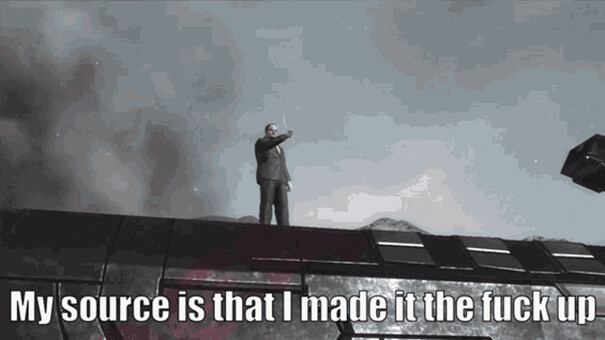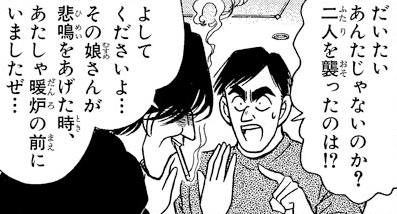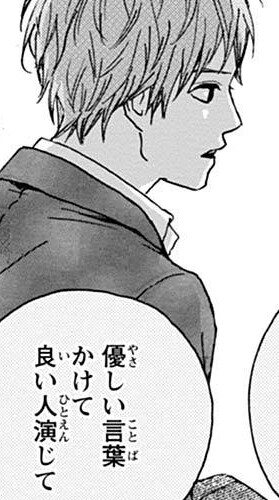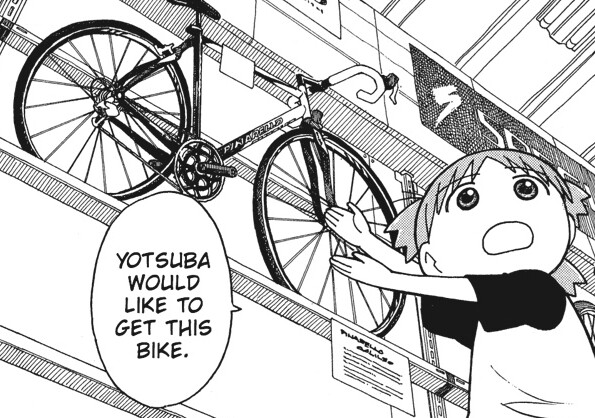Here are some of my thoughts:
Ellipsis
This is one of those things that makes it a bit of a pain to translate from Japanese to English sometimes! You can’t translate literally or it sounds strange and unnatural in English. It has been a bit of a learning curve for me to figure out how to translate short back-and-forth sentences that keep the core predicate and little else.
Here's a recent-ish example (from February 18), when Miyu Yamashita answered, "はい、見ます". Translations are mine and not official, so if you notice something weird, trust your own instinct, haha.
For hard mode, here’s the video (the part excerpted below starts around 1:13). The transcript is from 週刊プロレス and likely isn’t perfect.
山下「でも荒井ちゃんの試合でおしりんさんがレフェリーするのはちょっと狡い。公私混同する可能性があるので、それは無しかな。なので私が試合する時にやってほしいなと。(4月の後楽園だとアメリカ滞在中だが)いないっすね」
Yamashita: “But isn’t it a bit unfair, having Oshirin-san as the referee for Arai-chan’s match? There’s the possibility of her mixing business and her private friendships, and that’s not acceptable. So I want her to be the referee for my match.”
(But that’ll be at the Korakuen show in April, which is during your stay in America)
“I won’t be there, huh?”
荒井「見れないんですか?」
Arai: “Won’t you be able to watch it?”
山下「でも荒井ちゃんは無しね」
Yamashita: “But it’s not alright for her to referee for Arai-chan.”
荒井「配信で見ていただいて」
Arai: “Please watch it on the stream.”
山下「はい、見ます」
Yamashita: “Yes, I will.”
荒井「帰ってきてまだ(青木さんがレフェリーとして)いる可能性もありますからね」
Arai: “There’s a possibility that Aoki-san will still be there to referee when you come back.”
山下「そのまま続ける可能性があるか。それはちょっとお願いしておいて」
Yamashita: “There’s a chance that she’ll keep doing it? Please ask her to do this.”
荒井「説得しておきます」
Arai: “I’ll try to persuade her.”
Personal Pronouns
(2) page 29
The point about how first and second pronouns cannot be repeated in a single sentence was interesting to me, because that does bear out for most of the sentences I see, but I could’ve sworn I’d translated some (spoken) sentences that were pronoun soup… But when I went back to find one, I couldn’t find any easily, haha, so maybe I was misremembering and it was another word that was repeated over and over that made things confusing for me!
(3) page 31
Here it mentions that “a female first name is employed by a young girl as a self-address form in very informal speech.”
It’s possible the answer here is just “pro wrestlers are weirdos”, but I see wrestlers using their own name as a self-address form all the time! It’s especially common with Maki Itoh, who will refer to herself as 伊藤 quite frequently.
I had a long debate with myself over how to translate it, because sometimes it feels like she almost refers to her wrestling personality as a character that is distinct from her regular self… She does tend to refer to herself in the third person a lot in English, too, so sometimes I’ll actually keep it in my translation, even though it stands out more when someone does that in English than when they say it in Japanese.
Here's an example (from January 15) where I ended up translating it as "I" in one instance, and as "Itoh" in another:
No video for this, sorry! This exchange happened right after the match in the ring, not in the backstage comments.
山下「同じ気持ちだよね? なんかアレ、もしかして好き度が低くなってる? 会わなかったうちに」
Yamashita: “We feel the same way, right? Or maybe, your level of love has fallen? While we weren’t seeing each other.”
伊藤「その言ってることがいかに本気かどうかはね、この後のトーナメントで分かってくると思うから、伊藤は楽しみにしてるよ」
Itoh: “Whether or not you’re serious about the stuff you’re saying, I think that’ll become clear in the tournament, so I’m looking forward to it.”
山下「トーナメントじゃなくても私は大好きだよ!」
Yamashita: “Even if there’s no tournament, I still love you!”
伊藤「伊藤はもちろん優勝したいんだけどね」
Itoh: “Of course Itoh wants to win it, but—”
山下「無視…」
Yamashita: “You’re ignoring me…”
伊藤「口だけの好きとかよく言ってそうだから、あんまり信用できないんだけど」
Itoh: “You say that you love me all the time but you’re all talk, so I don’t really buy it.”
山下「分かった。試合で証明していくよ」
Yamashita: “I understand. I’ll prove it in the match.”
(5) page 32
Agreed on this section showing its age a little. Then again, the DoBJG specifies that third person pronouns are fairly widely used in spoken Japanese, which is what all of my examples are from…
Funnily enough, I initially learned (from textbooks and also Japanese Ammo with Misa) that 彼 and 彼女 are primarily used to refer to a girlfriend or boyfriend. Then I learned from watching pro wrestling that this is not necessarily the case at all!
Looking back through my translations, it seems like many of the instances are used when they translated English-speaking wrestlers’ speech into Japanese, but there are definitely plenty of examples of Japanese wrestlers using them to refer to other Japanese wrestlers that they are (presumably?) not dating.
Here's probably the funniest example (from October 29, 2022), which was a bit of a pain to translate:
Here’s the video. It’s probably extra confusing trying to go off of just the transcript alone here, because some of it is in “English” (Yuki Kamifuku coins some new terms…), and the transcript isn’t always super clear, haha. Context: they just faced the American wrestler Willow Nightingale.
(The transcript didn’t cover the beginning)
Kamifuku: (in English) “Maki, I’m so sorry I lost.”
Itoh: (in English) “No, it’s okay, it’s okay.”
Kamifuku: (in English) “I’m sorry.”
伊藤「(しばし上福が英語で話して)イッツオーケー。彼女はね、負けてごめんなさいと言っています。(上福話す)めっちゃ、全身どこもかしこも痛いと言っています」
Itoh: (translating) “She says ‘I’m sorry for losing’"
Kamifuku: (in English) “It hurts! Everywhere hurts!”
Itoh: (translating) “She says ‘it hurts all over!’”
上福「マケチンゲール、カナチンゲール…」
Kamifuku: “I Lostingale and am Sadingale…”
伊藤「彼女はマケチンゲール、カナチンゲールと言っています。頑張りましょうね」
Itoh: (translating) “She says ‘I Lostingale and am Sadingale’. We’ll keep trying, right?”
上福「ネクストタイム、プリーズ」
Kamifuku: (in English) “Yes, next time, next time, please.”
伊藤「もう1回やりたいと」
Itoh: (translating) “She wants to do it again.”
上福「言ってないです」
Kamifuku: “I didn’t say that.”
伊藤「言ってない? でも負けたので…」
Itoh: “You didn’t? But since we lost…”
上福「ヤリカエチンゲール」
Kamifuku: “I want to get Revengigale.”
伊藤「必ずやり返すと言っています」
Itoh: (translating) “She says ‘I’ll definitely do it again’.”
上福「アリガチンゲール。カエルチンゲール」
Kamifuku: “Thankingale. Imma Leavingale now.”
伊藤「カエルチンゲール」
I find this part a bit confusing: “There is one condition governing the use of third person pronouns: The speaker/writer is psychologically somewhat distant from the referent of the pronoun.”
Doesn’t this contradict the common case of people using it to refer to someone they’re dating (who presumably they are not psychologically somewhat distant from)?
Looking back through my translations, they do appear to more or less follow that. Or at least, the wrestlers using 彼女 (including the translated English-speaking wrestlers, actually) tend to be wrestlers from outside the company referring to an opponent they don’t know particularly well (whereas all of the TJPW wrestlers are pretty close).
In the example I shared above, Maki Itoh and Yuki Kamifuku do know each other extremely well, but I think Itoh used 彼女 to refer to Kamifuku when “translating” for her because she was trying to play the role of a professional interpreter.
![]()
![]()








